The Amish belong to a religious community and the life they live is mostly farming and being self-sufficient in many ways. Gardening is therefore spiritual to this community.
The gardens that they cultivate include food that is consumed and medicinal gardening is a priority as they rarely ever seek medical attention unless it is an emergency.
An Amish Medicinal Garden contains every medicinal herb that can be used for different ailments. Amish communities are closely connected to the earth and they also have a deep connection to God which is why their lives are centered to the soil, birds, bees, insects and butterflies. These help in sustaining and pollinating what they grow.
For every remedy that we, as individuals, have to seek an appointment with a doctor, the Amish folk have readily available medicinal plants in abundance right in their gardens.
Among the medicinal herbs that the Amish grow are a few that are listed
Mint
Mint is used by the Amish for stomach issues and also for anxiety. Mint tea is used and since it is easier to grow on the ground or even in a pot, mint plays an important part of the medicinal garden within the Amish community.
Amish have a medicinal cabinet that is always well stocked with different types of dried herbs. These are stored for use in the event of a cough, cold, sore throat and also for making poultices. Get your Mint seeds from here.
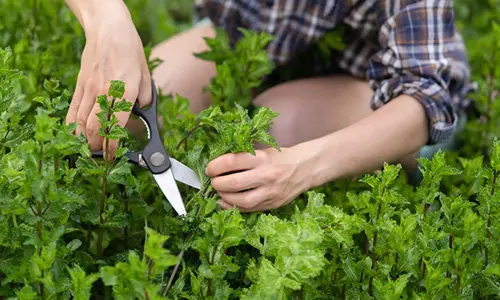
Valerian
They use Valerian root for sleeping disorders or insomnia. Instead of popping pills that can be addictive and harmful they use Valerian to calm the nerves and also to induce sleep.
Related: 10 Low-Maintenance Plants You Should Add To Your Garden
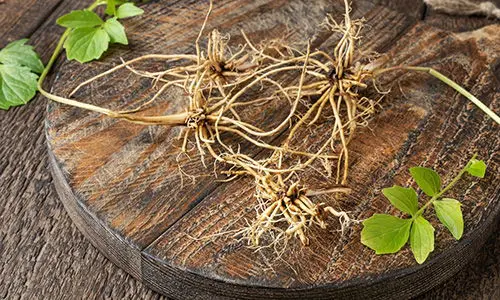
Aloe Vera
When it comes to burns rashes or other skin disorders or sunburn, Aloe Vera plays an important role. Since Amish are avid gardeners they tend to spend hours in the sun tending to their medicinal gardens, sunburn can happen during the hot summer.
There are also incidences of burns from fire that can occur in the kitchens where Amish people cook with dry firewood. Hot scalding pots can sometimes topple causing burns and Aloe-Vera is applied to soothe the burns.
Aloe is easy to grow so it is not surprising to see rows of it neatly grown.
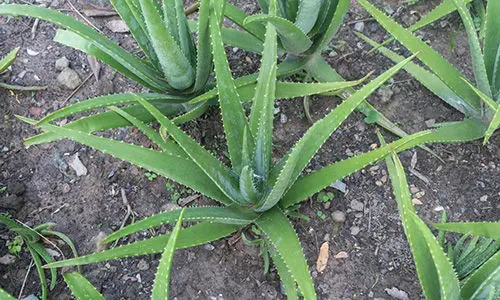
Red Clover
Red Clover belongs to the legume family. In addition to being used as a medicine the Red Clover is grown for cattle to graze. Since the Amish have their own cattle and are self-sufficient, Red Clover has a dual purpose. Used widely by the Amish mostly to treat all types of respiratory ailments, Red Clover is used for the treatment of Bronchitis, Asthma, wheeze and whooping cough.
In some instances they also use it for treating some types of skin cancer. Skin diseases such as psoriasis, and eczema are also treated with Red Clover. Acting as a diuretic to help excess fluid out of the body and to expel mucous from the lungs in case of severe lung congestion, Red Clover plays an important role in purifying and cleansing the body eliminating toxins.
With Red Clover used as a medicine, the Amish have also found a way to cleanse the liver and improve blood circulation that can eliminate rheumatism, arthritis joint pains edema and other related health concerns.
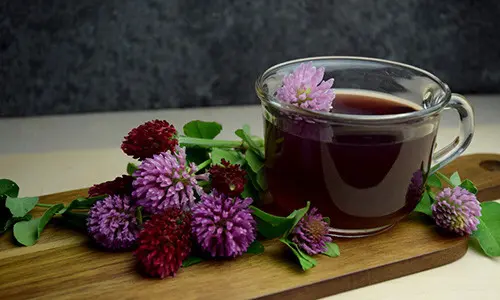
Echinacea
Echinacea is known for its ability to protect the immune system and is widely used by the Amish women.
The chemicals are believed to be released from the body and is known to decrease inflammation. It is also used by the Amish for treating the common cold cough and other respiratory infections.
Although this is used by the Amish community for their health, there is no known scientifically proven records in support of this claim. It is solely the lifestyle of the Amish that make use of this medicinal flower for their requirement.
Get your Echinacea seeds from here.
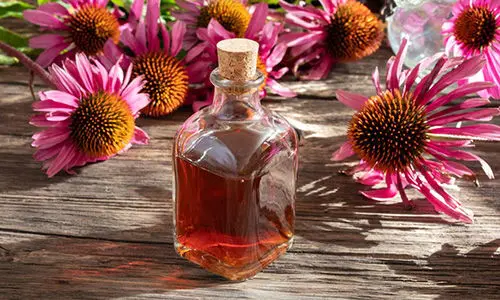
St. John’s Wort
St. John’s Wort was known to be named after John the Baptist and the flower of the St. John’s Wort blooms on the Feast day of St. John the Baptist which falls on the 24th of June. These flowers grown by the Amish are said to release chemicals that are beneficial for depression and mood swings.
For mood swings during pregnancy and for the Amish women entering into menopause, it is believed that St. Johns Wort helps to overcome this situation.
The young females marry early and bear children so during and in the latter years of their lives, they depend largely on Medicinal plants grown within their community. St. John’s Wort is used for mild to moderate depression and post-menopausal and peri-menopausal symptoms are treated.
Seeking medical help from a professional is rarely done though in certain instances it becomes necessary for life saving measures. Being a community that believes in self sustenance, they reach out to their Medicinal garden for all the cures to their illnesses. This is the traditional practice using the medicine gardens that are grown and cared for by the Amish.
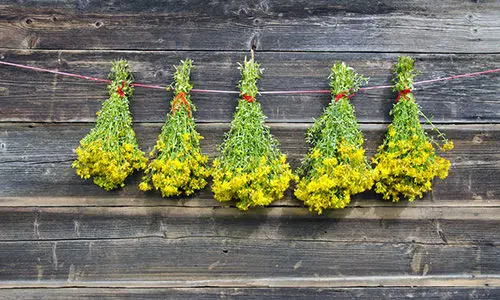
Garlic
Widely used in the modern world bearing the scientific name Allium Sativum the Amish community use garlic in many ways in addition to cooking. Garlic is known as a blood thinner and therefore helps in any heart related health problems.
Belonging to the Leeks, chives and onion family, the Amish grow lots of garlic as it is easy to harvest in a short space of time. Garlic is known to produce the chemical known as Allicin and the pungent smell that emanates from garlic is caused by this chemical.
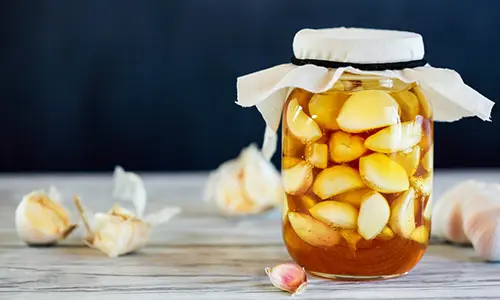
Ginseng
The funny entwined root known as Ginseng is widely used by the Amish especially for blood sugar related issues.
Ginseng is known for its blood sugar lowering properties and unlike people in the modern world popping blood sugar lowering tablets that come with long term side effects, the Amish depend on the miraculous root Ginseng. It helps to fight fatigue and to enhance functions of the brain as well.
Overall the Amish medicinal garden has a wealth of natural medications provided by the hand of God for all ailments.
You may also like:
 10 Canning Recipes From The Amish
10 Canning Recipes From The Amish
Learn How To Make A 2-Minute Amish Syrup For Colds And Coughs (Video)
Recipes From “The Great Depression” To Survive The Next One
What Happens When You Bury A Fish Head Under A Tomato Plant
The Indispensable Medicinal Garden Every Homestead Should Have

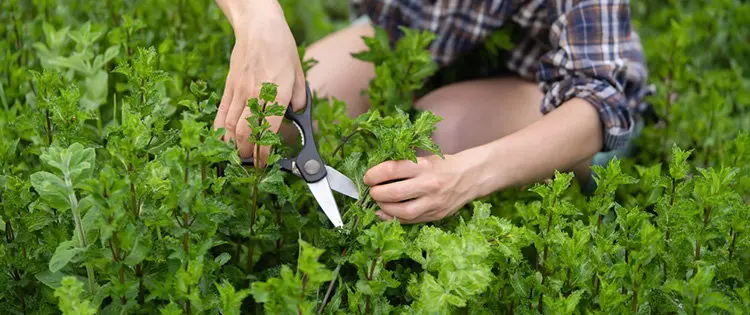

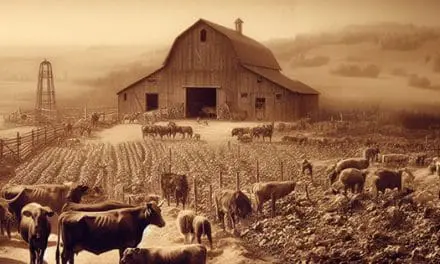


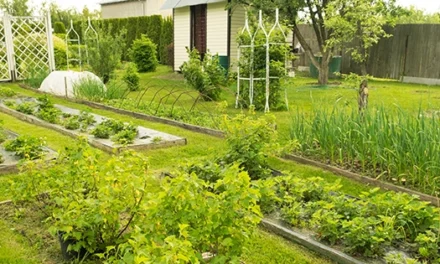








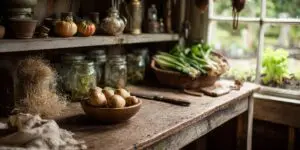
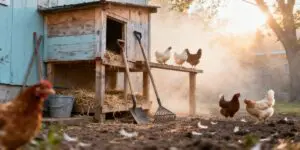

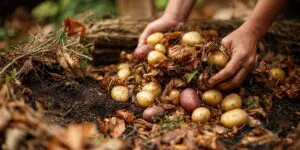
Well researched and very nicely written article.! We have so much of God-given herbs that we can use. The Amish make use of nature unlike us popping pills for every little ailment. Good job Admin. Enjoyed reading the info.
Thank you so much for the comment.
Well written to detail. Much to learn
Thanks very much Shauna. Judy
I have used Valerian Tincture for sleep apnea but only somewhat effective
Thanks for the feedback.
Is the Author Amish? Very interesting article and the links provided to videos is awesome. Great content.
No I’m not Amish. Thank you for the review
Good information and to the point. Well written
Amish way of living is really healthy.
Well written and very helpful
Gosh so much we can learn front eh Amish lifestyle. Very nicely written and helpful
Thanks George
Very helpful arricle